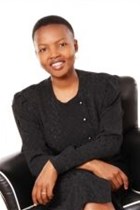






The focus group methodology requires consumers to take time off work, commute to a certain location and in some instances be at sessions till late into the night away from their families. Delays and too lengthy sessions may also lead to agitation and fatigue.
So how can we have meaningfully connections with consumers without disrupting their lives? How can we be a part of their lives?
The Statistics Portal (statistics and studies from more than 22,500 sources) says that 49% of the South African population are active users of WhatsApp. This means that of the 57, 398, 421 (http://www.worldometers.info/world-population/south-africa-population/) of the South African population, 28, 125, 226.29 are active users of WhatsApp. This is a large pool of consumers to access through a methodology that allows us to go to them rather than disrupting their lives expecting them to come to us.
WhatsApp has become a natural way for consumers to communicate to the world around them. It is used to communicate, share information, entertain and even do business. Based on the statistics, WhatsApp is the new lens into consumer lives. What makes it a great tool is that it gives access to the ‘always connected’ mode that consumers are in. It is a tool to give and receive opinions and feedback in real time.
This methodology can be leveraged as a continuous ethnography into consumer lives from the moment they wake up till they go to bed. It can give us access to every step in their environment and points of influence. WhatsApp has become a preferred form of communication. It is familiar, something they relate to and makes the consumer feel more in control – it’s their space, their world. It’s a safe space.
In this space as researchers we can get back authentic, unedited stories about their product or brand interactions in their daily lives – their personal unedited truths. We can have direct access to their pantries, fridges, bathroom cabinets, toiletry bags, wardrobes – the possibilities are endless. We can see it as it is, at that point in time. We can be part of every meal and shopping occasion. We can be part of all the highs and lows. We become one with the consumer.
WhatsApp provides a sense of anonymity and thus allows consumers to let their guard down and truly express themselves. It does not have the limitations of accessing one consumer but can reach out to the entire household. Different project tasks keep the engagement fun and interesting and provides amazing imagery for the final report.
WhatsApp is cheap, instant and offers a variety of options for engagement such as text, voice notes, video and images. It encourages free expression. It has no limitations or time pressure of 2 -3 hours but can be run from 3-7 days at a time.
Yes, the methodology may have its limitations around confidentiality and is therefore limited to exploratory work and not ideal for concept testing. It nonetheless remains a great tool to get to know consumers and how they engage with different categories in their daily lives. It provides a broader picture in helping us understand the interrelations within categories.
The beauty of WhatsApp is that it allows a client to have multiple user groups across regions without the burden of travel, focus visions and streaming. Clients are active observers within the groups.
This is the new way of doing consumer exploration. As mentioned previously, traditional glass bowl exploration may be limiting us to the glass bowl. WhatsApp opens us up to a whole new consumer world. It can be a trigger to new ideas and product solutions.
So, when I asked, how do we provide front row seats for clients into consumer lives, WhatsApp is a great way to start.
